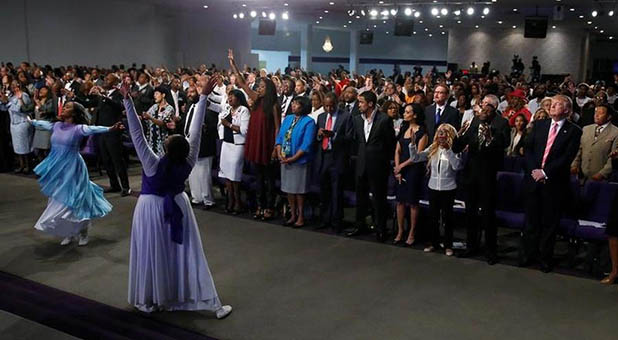Want to Defeat Secularism in the Public Square?
Don’t get me wrong. Churches are much more than just social clubs. Yet the evidence suggests that our churches need to be social clubs.
One of our concerns as Christian leaders and role models is the secularization of America. We hear that surveys show a growing number of Americans are identifying themselves as atheists. This is often blown out of proportion, however, as reviewed by (my former student) Jonathan Hill in his treatise, “Emerging Adulthood and Faith.” The growing number of atheists is not being drawn so much from faithful church attenders, but rather from those who have identified as rare and infrequent attenders. Practicing religious teens tend to become religious adults, though sometimes they evidence a few years of searching during their developmental years.
Nevertheless, we as religious parents are concerned about the faith-development of our sons and daughters. What factors might increase the likelihood that our youth will remain among the people of faith?
A research team from the psychology department at Grove City College measured the religiosity of 191 teens (ages 13 and 16) and then went back to them four years later. The measures of religiosity did show small but significant declines. The responses of these emerging adults indicated that they were somewhat less religious than they had been four years earlier. What factors predict religious stability versus religious decline?
As part of our surveys, we asked these emerging adults about their social interactions and shared values, in the context of their friends, their families, and other significant adults. What was the frequency and quality of their social relationships?
Our results demonstrated that the mere frequency of the teens’ social interactions with their friends predicted religious stability. The frequency of the teens’ activities with friendship groups matter. The time we spend on youth groups and youth outings is an important investment.
Lest you think, however, that I am advocating age segregation across church life, I hasten to note that the social interactions with family and other significant adults were even more important than the social interactions with friends. These family and adult social interactions were 31 to 42 percent more predictive of religious stability. The time I invest in interacting with the teens in my church is critically important to their future religiosity, just as my involvement as a parent is critically important for my own children. The time we spend with our teens helps to stabilize the faith of the next generation.
Lest you think, however, that I am advocating that we reduce worship and teaching in order to increase social interaction time, I hasten to note that another variable—shared values—was an even stronger predictor. When teens indicated that they perceived shared values with their friends, family, and other significant adults, their religious faith was likely to be more stable. This factor of shared values was 32 to 47 percent more predictive of religious stability than the impact of social interactions. My position as a role model in my church is critically important to the children and teens at my church, just as my position as a parent is critically important for my own children. The recognition of shared values helps to stabilize the faith of the next generation.
Not that we can separate the two. I would suggest that it is only through the social interactions that our teens come to understand and appreciate the common values we hold that span across the generational gap. Social interactions and shared values are inherently linked.
Our churches must continue to be bastions of worship and Christian teaching. However, the social aspects of church life are also valuable. To the extent that societal personal relationships are challenged in a culture in which family instability and mobility are common, it is critical that our churches provide the social stability, strength and support that our teens and emerging adults so badly need. Our churches cannot ignore their duties in Christian teaching, but neither can they ignore the social needs of the Christian community. Our church is not just a social club, but it must provide the social support necessary to facilitate stability in a culture of secular pressure. {eoa}
Dr. Gary L. Welton is assistant dean for institutional assessment, professor of psychology at Grove City College.
This article was originally published at VisionAndValues.org. Used with permission.
















































